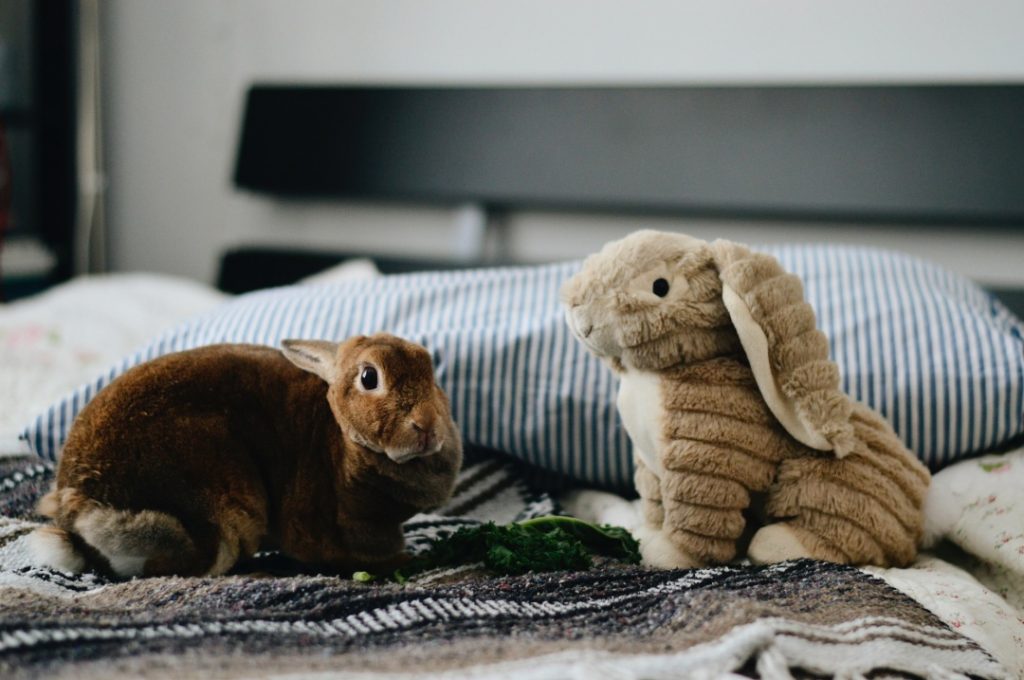Rabbits and bunnies are adorable creatures that can make extraordinary pets. On the other hand, they can be incredibly high-maintenance pets too and may not be the most suitable animals for children.
While rabbits may make a good pet for adults and even teens, they have some traits and needs that do not match up well with young children. The following reasons may convince you why rabbits are not typically ideal pets for kids.
1. Unfriendly breeds
While rabbit connoisseurs can tell you all about the different breeds and types of rabbits there are, most pet stores and even many local breeders cannot. Unless you are certain about the rabbit’s pedigree, there is a good chance that you may wind up with a skittish breed on your hands.
Many breeds of rabbits are not interested in being a pet on the same scale as a dog or cat. This can be difficult for children to fathom who simply want to play with their pet.
Getting an unfriendly rabbit can result in nips, bites, and scratches. Mini lops are known to be friendly and good with older children, but even they may scamper and hide from smaller kids who are not skilled in the ways of rabbits.
2. Expensive
Bunnies cost a lot of bread! Expect to pay some relatively big bucks – on par with a good-sized dog. You will need a big enough cage for your rabbit as well as weekly bedding, food, timothy hay, fresh fruits and vegetables, and grooming supplies. Even for a small bunny, these weekly expenditures add up to one expensive pet.
3. Destructive
House rabbits can run amuck!? While some rabbits are perfectly trainable and will return to their cage to relieve themselves, this is not always the case. Moreover, children will be hard-pressed to figure out how to potty-train their bunny as many adults struggle to train their rabbits in this regard too.
Aside from the mess they make, rabbits love to chew.? One of their favorite things to chew is cords to all manner of electrical appliances and gadgets. While kids will love to see their rabbits hop all around and, of course, rabbits need to hop around for exercise and overall health, these creatures can wreak havoc in a few mere moments.
4. Grooming needs
Rabbits need lots of care. Grooming is essential to maintain a rabbit’s appearance and health. Their coat needs daily brushing for example. While rabbits spend an inordinate amount of time grooming themselves, they do need help in the nail department.
Cutting their nails is no job for a child as rabbits tend to be skittish and will squirm to get away and leap back to their cage or somewhere to hide at nail-cutting time.
This can be a difficult task for adults who are not yet skilled with rabbit care, but it should never be attempted by a child who could wind up with some terrible scratches and may even seriously hurt the rabbit while attempting to cut its nails.
5. Boring
Bunnies like to sleep a lot and do their own thing. Even a friendly bunny may only be interested in a human child for so long. Kids often do not have the patience to simply watch their bunny eat its hay or snooze near its water bottle.
For this reason, rabbits may lack a certain excitement factor that a puppy, for instance, never does! While many children marvel at the cuteness of their bunny, they can easily become bored with the animal after a short time once they have it at home.
6. Hard to train
Just as potty training rabbits is difficult, it is also difficult to train them to do anything else. In most things rabbits have a mind of their own. While each rabbit will have its own personality, most rabbits like to do their own thing.
They will not sit or stay on command and very likely can’t be taught to obey your house rules. This also means that your rabbit will have to be watched whenever it is out of its cage. Children will find it hard to supervise these little animals that have a way of making mischief whenever they want to.
7. Looks cuddly but does not like to cuddle
Rabbits are such cute little fluff-balls that it seems a horrible irony that they often are not interested in snuggling with their owners. While some, eventually, may develop a level of trust for their owner that may prompt them to perch up on a human lap for some pets, most rabbits do not like to be held. When rabbits are held they can become jittery and agitated.
Children may find it hard because they simply want to love their cute little pet; often children lack the patience to develop the trust that a rabbit needs in order to sit on a lap and be snuggled. It can take months to earn a rabbit’s trust and some rabbits simply never feel comfortable in the arms of a human.
8. Delicate
Rabbits are quite delicate and can be hurt easily. Rambunctious kids who can’t be prevented from grabbing or picking up their bunny often hurt the rabbit and sometimes these injuries are fatal.
While teens and even some tweens can understand the delicate nature of their pet, many small children do not understand the care requirements of rabbits and can’t refrain themselves from holding their rabbit even when it emphatically does not want to be held.
The truth is rabbits can make excellent pets but not typically for children. These are just a few main reasons to consider. When pet shopping for young children it’s best to avoid these cuties and leave them to adults.

